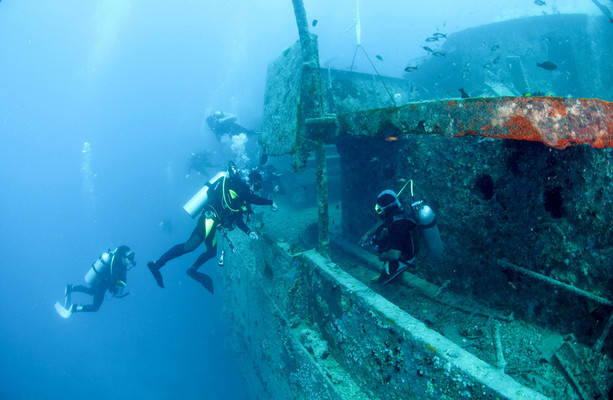Headline: Treasure Found: Englishman Discovers €185 Million Shipwreck Cargo
Sitdown Sunday: The Englishman Behind the Discovery of €185 Million Worth of Shipwreck Cargo
In a remarkable maritime discovery that has captured international attention, an Englishman has unveiled €185 million worth of cargo from a sunken ship off the coast of Ireland. This astonishing find not only highlights the rich history of maritime trade and exploration but also showcases the intricate relationship between technology and underwater archaeology. As the world seeks to learn from the past, this discovery may pave the way for future underwater explorations and conservation efforts.
The Discovery
In late September 2023, renowned underwater archaeologist and treasure hunter James Fisher, based in Cornwall, England, led a team of divers on an expedition off the rugged coast of County Kerry. Their mission was to explore the remains of a centuries-old trading vessel believed to have sunk during a storm in the 17th century. Fisher, who has dedicated over a decade to underwater exploration, utilizes cutting-edge technology to locate shipwrecks that have been long forgotten by history.
"We were drawn to this area not only because of its historical significance but also due to the intriguing stories passed down through generations," Fisher explained. "The moment we uncovered what we initially thought was debris, we realized the enormity of our find."
Diving Into History
The sunken vessel, now identified as the SS Diamond, was part of a lucrative trade route connecting Europe with the Americas. It is estimated that over 300,000 gold coins, precious jewels, and a variety of exquisite artifacts were lost when the ship met its untimely end. Researchers believe these riches were en route to fund the burgeoning art scene in Europe during the Renaissance—providing an alluring glimpse into a transformative period in history.
Fisher’s team employed advanced sonar mapping and remotely operated underwater vehicles (ROVs) to carefully navigate the ocean floor. The discovery not only marks a geological excavation but also a potential archaeological treasure trove for historians examining trade routes and five centuries of maritime heritage.
The Significance of the Find
Economic Impact
The financial implications of retrieving and auctioning the recovered cargo are significant, promising potential economic rejuvenation for local communities reliant on tourism. The discovery is projected to attract visitors from around the world to Anascaul, a nearby village, where Fisher has opened a temporary exhibit showcasing artifacts recovered from the wreck.
"This find could be a game-changer for local tourism and business. We expect not only historians and treasure hunters but also families eager for an adventure to flock to the area,” says Mary O’Sullivan, the local tourism officer.
Cultural Heritage and Conservation
Beyond financial gain, the discovery raises critical questions surrounding cultural heritage and conservation ethics. Fisher emphasizes the importance of preserving archaeological finds instead of auctioning them off to the highest bidder. "It’s not just about the monetary value—it’s about understanding and cherishing our shared past," he remarked.
Marine archaeologist Dr. Laura Fitzpatrick echoes this sentiment, emphasizing a collaborative approach with local governmental agencies to ensure that any recovered findings not only stay within the community but also contribute to broader historical narratives.
The Road Ahead
As Fisher’s team continues their work, discussions concerning heritage laws and international regulations around shipwrecks have resurfaced. Legal frameworks may need to adapt to accommodate future discoveries as underwater treasure hunting continues to grow in popularity.
"We have a responsibility to balance the excitement of discovery with ethical practices,” Fisher added. “Future hunters need to proceed with caution and respect, learning from the past as we delve deeper into our oceans."
Engaging the Community
The local community is excited about the find, with local schools already planning field trips to the temporary exhibit to educate students about maritime history and archaeology. Fisher is also set to host workshops aimed at engaging the community in conversations about heritage, conservation, and the responsibilities of treasure hunters.
"We must cultivate an understanding that archaeological finds are not merely artifacts but stories waiting to be told. We encourage the public to participate," he stated passionately.
Closing Thoughts
As the treasure hunt continues and more artifacts are unearthed, the story of the SS Diamond serves as a reminder of our rich maritime history and the potential that lies beneath the waves. The conversation surrounding ethical practices in archaeology, local economic growth, and community involvement will undoubtedly influence future explorations for years to come.
What are your thoughts on the implications of treasure discoveries like this one? Share your opinions in the comments below or on our social media platforms.
For further reading on maritime archaeology and the implications of underwater discoveries, check out our articles on The Impact of Marine Archaeology and Shipwrecks: A Treasure Trove of History.
Image tag for relevant images:
External links:

